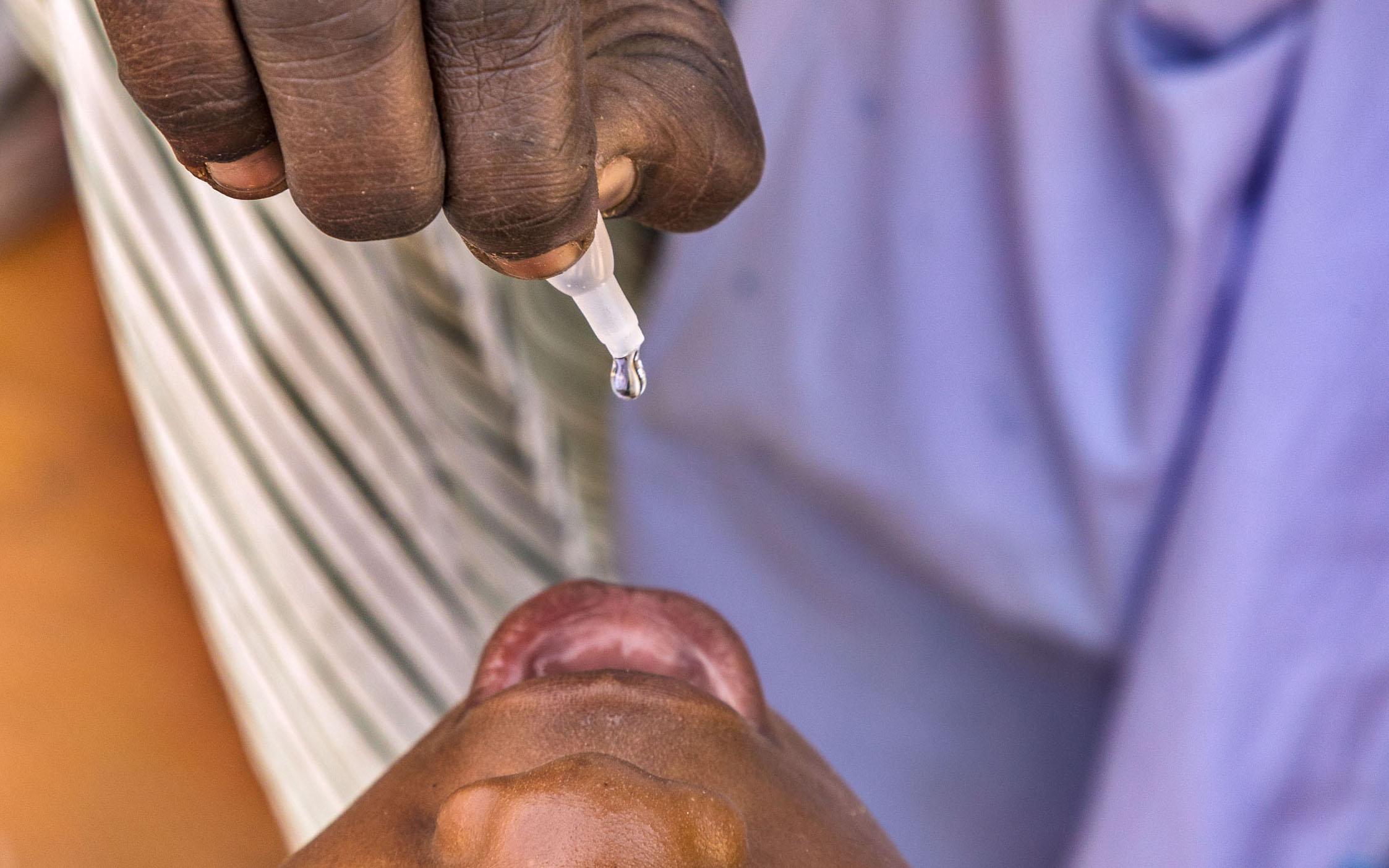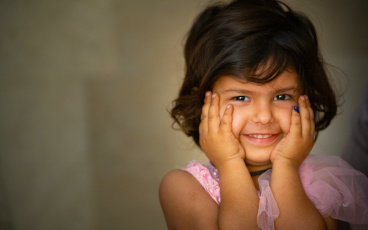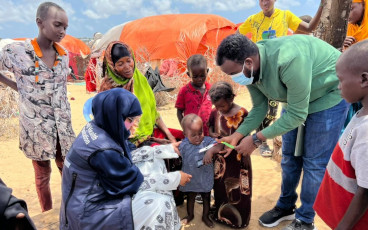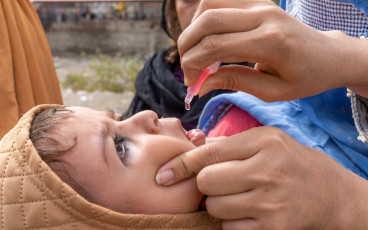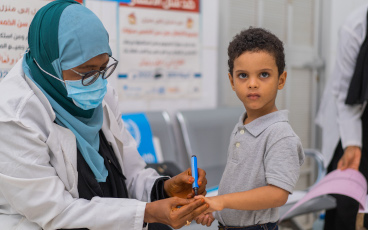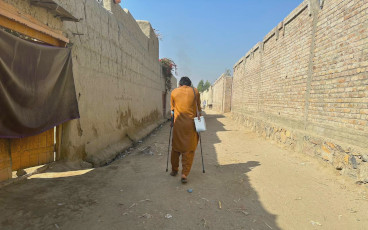Pakistan: vaccinating the nation on Independence Day
On Pakistan Independence Day, vaccinators break records for the number of children protected against polio.
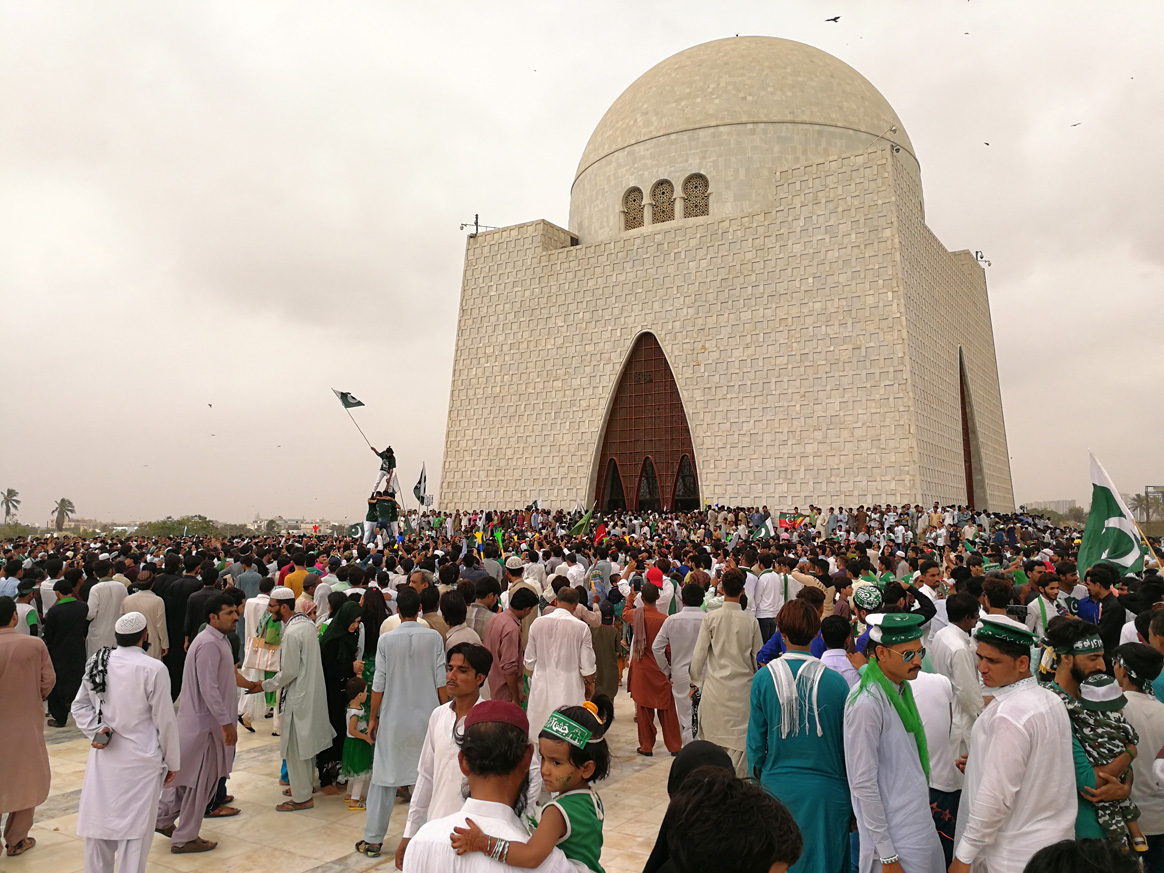
Children clutch parents as the crowds gather. Overhead, clouds fill the sky, whilst below, noise rolls around the square where people stand. Shouts, music, and laughs all contribute to a growing sense of occasion.
The excitement lies at the heart of Karachi, Pakistan’s largest metropolis. Mazar-e-Quaid, the mausoleum of Pakistan’s founding father Muhammad Ali Jinnah, is a prominent symbol of Pakistani independence, and of the united people of Pakistan.
Each year, millions of people from across Pakistan and the world visit Mazar-e-Quaid. The number of visitors reaches its peak on 14 August, Pakistan’s Independence Day. As the sun rises, thousands arrive dressed in green, the national colour, carrying food and flags, ready to be first to enter once the site is opened up to the public.
A duty to the people of Pakistan
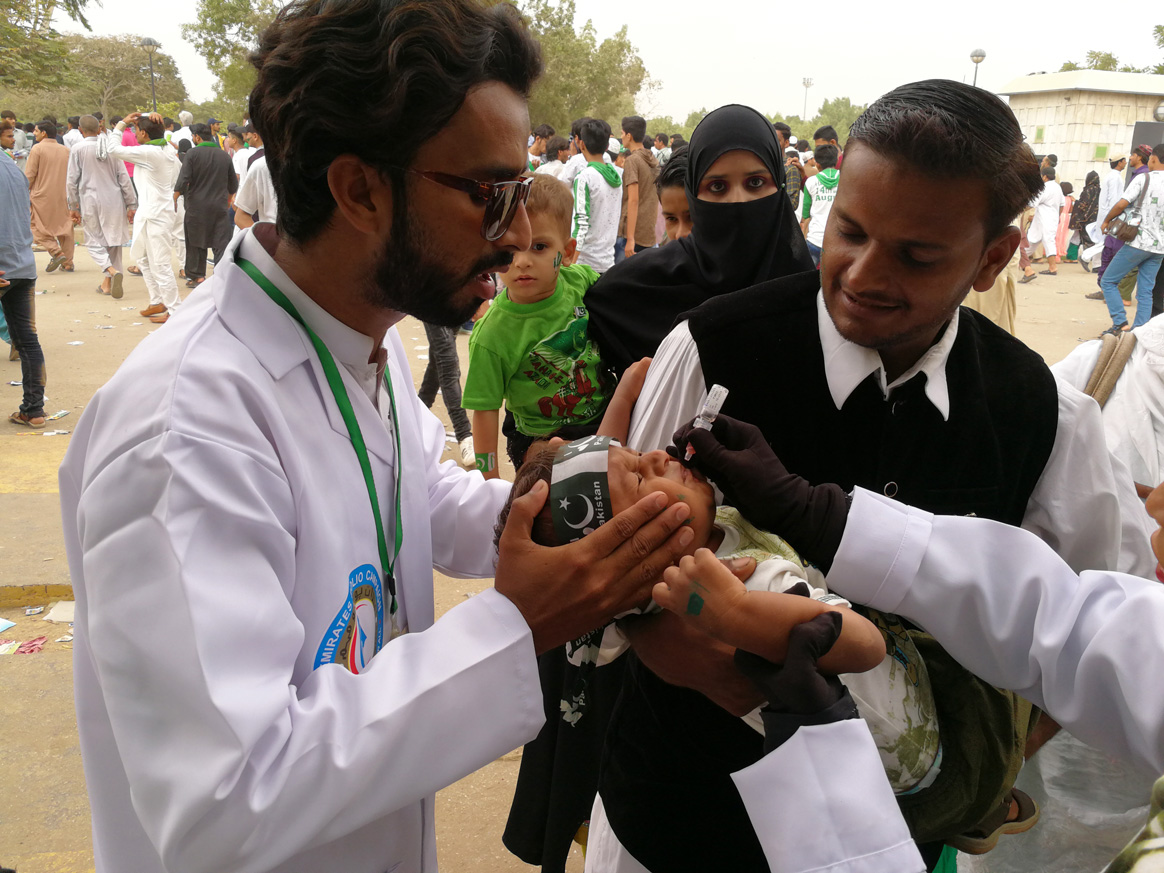
For the Pakistan polio eradication programme, Independence Day is an important opportunity. From morning to night, they will take part in a herculean effort to vaccinate all children visiting the mausoleum against the poliovirus. In doing so, they are setting world records for the number of children vaccinated in one location.
Permanent Transit Points (PTPs) are vaccination sites established at important transit points such as country and district borders, bus terminals and railway stations, to make sure that children on the move are vaccinated against polio. Currently, there are 390 PTPs across Pakistan.
On an ordinary day, eight vaccinators work at a PTP at Mazar-e-Quaid. After a quick brief, they are ready to protect all visiting children from the virus with just two drops of the safe, effective oral polio vaccine.
Independence Day requires a different kind of operation. The teams know that they have to take the opportunity to vaccine young children who otherwise might miss out.
Twenty vaccinators volunteer, enthusiastic to meet the influx of parents with young children entering the site.
As the crowds surge into the mausoleum, vaccinators immunize a new child every few seconds at fixed points at the entrance and exit, whilst others mingle with the crowds, searching for any young child without a purple stained finger – the sign used to indicate that they have been vaccinated.
This year, 11 409 children were vaccinated at Mazar-e-Quaid over the course of Independence Day. With such a small team, this is an impressive achievement.
The vaccinators
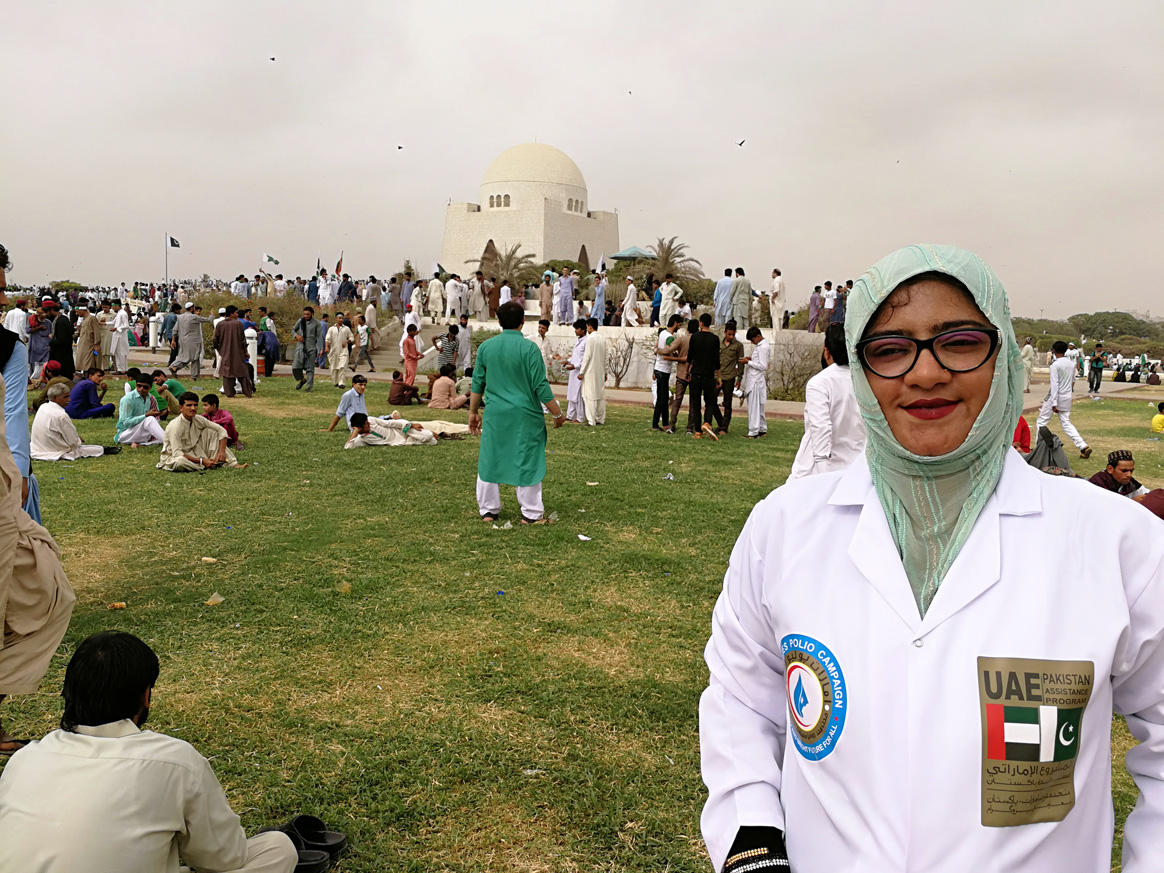
Mehwish Sheikh is a vaccination supervisor at Mazar-e-Quaid and is considered to be one of the most dynamic polio eradicators to have ever worked there.
Talking about her passion for polio eradication, and what drives her to protect Pakistan’s children, she says,
“Working against polio is in my blood. My mother started as polio worker in 1992 with the start of the polio eradication drive. Following her, I have worked for more than a decade now.”
“My mother vaccinated the current Chairman of Pakistan People’s Party Mr. Bilawal Bhutto Zardari, and she was featured on television and newspapers. My sister is also a vaccination worker so vaccination and work against polio is our passion.”
“Will you believe that I took only 3 days off on my wedding and then rejoined the team here?”, she laughs.
So what is it like vaccinating on Independence Day?
Mehwish isn’t afraid to acknowledge the challenges that the teams face on 14 August each year.
“This is really a tough day for all of us because the number of people is so overwhelming. Peoples’ connection with their leader is especially strong on Independence Day.”
With a wry smile, she continues, “Of course, our real independence will be our independence from polio virus.”
The parents
Whilst vaccination in this context might seem unexpected, parents visiting the Mausolem are enthusiastic. This is thanks to the efforts of the Pakistan polio programme and the government to educate the population about the vaccine.
One father notes, “As parents, it’s our duty to protect our children from going into harm’s way and administering all sorts of vaccines is one way of doing this.”
A nearby mother concurs, “The vaccinators are here to save the lives of our children and we must cooperate with them.”
The eradication of polio in Pakistan will be a success for thousands of people involved in the programme, and a source of national pride.
Speeding past to vaccinate more children, one vaccinator calls out, “We want to see our names among those who are fighting the final battle against polio in Pakistan”.


